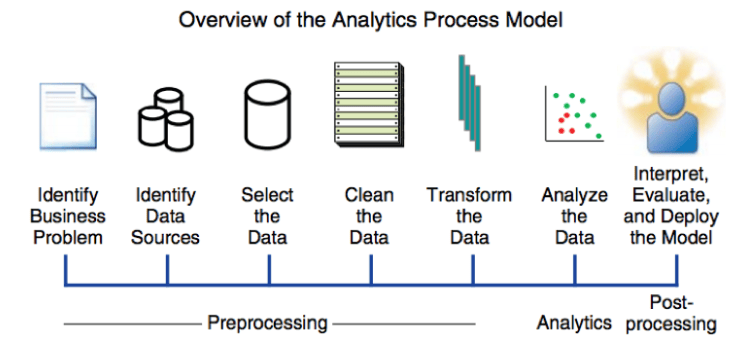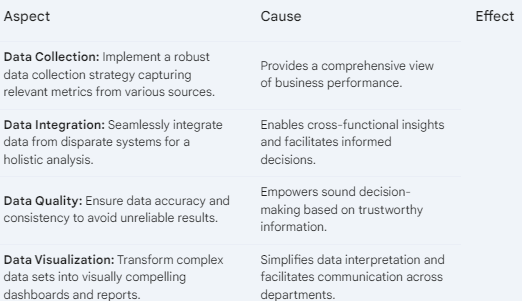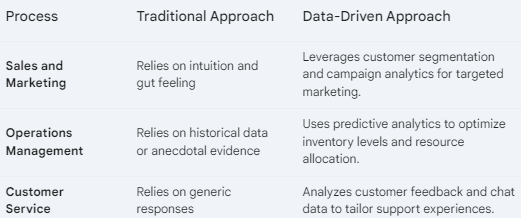In today's dynamic business landscape, navigating the complexities of core processes and key operations can feel like traversing a labyrinth. Data, once an afterthought, has become the illuminating torch, guiding companies towards informed decision-making and accelerated growth. At Erphub.com, we understand the transformative power of data analytics, and we're here to equip you with the tools and insights needed to unlock its full potential.

Imagine a world where every decision is backed by concrete evidence, where inefficiencies are identified and addressed before they impact your bottom line, and where customer behavior translates into actionable strategies. This, my friends, is the power of analytics in action.
Here at Erphub.com, we champion a data-driven approach, drawing inspiration from the cutting-edge practices of Harvard Business Review and MIT Sloan Management Review. We believe that by analyzing core processes and key operations, businesses can gain a deeper understanding of their strengths, weaknesses, opportunities, and threats (SWOT).

Foundation of Data-Driven Decision Making: Core Processes
These foundational aspects are the bedrock upon which a thriving data analytics ecosystem is built. But the journey doesn't end there. Let's delve deeper into how analytics can be leveraged to navigate key business processes and operations.
Sales and Marketing:
- Customer Segmentation: Identify customer groups based on demographics, interests, and purchase behaviors. This allows for targeted marketing campaigns and personalized customer experiences, leading to increased conversion rates and customer lifetime value (CLTV).
- Marketing Campaign Performance: Track the effectiveness of marketing campaigns across different channels (e.g., social media, email marketing) to optimize spending and maximize return on investment (ROI).
- Sales Pipeline Management: Analyze sales data to identify high-value leads, predict potential roadblocks, and forecast sales volumes. This empowers sales teams to prioritize their efforts and close deals faster.
Operations Management:
- Inventory Management: Analyze historical data and predict future demand to optimize inventory levels and minimize stockouts or overstocking. This improves resource allocation and efficiency.
- Supply Chain Optimization: Track the movement of goods throughout the supply chain to identify bottlenecks, reduce lead times, and ensure on-time delivery.
- Cost Control Measures: Analyze expense data to identify areas of financial waste and implement cost-saving initiatives. This improves the organization's financial health.
Customer Service:
- Customer Satisfaction Surveys: Analyze customer feedback to identify areas for improvement and enhance customer service experiences.
- First Contact Resolution (FCR) Rates: Track the percentage of customer issues resolved on the first contact to identify areas for improvement in customer support training.
- Chatbot Performance: Analyze chatbot interaction data to improve chatbot responses and enhance customer self-service capabilities.

Popular customer focused aspects:
By analyzing customer journey phases, businesses can personalize their offerings and address customer needs more effectively. Here are some scenarios where analytics can be leveraged:
- Website Analytics: Analyze how customers navigate your website, identify user behavior patterns, and optimize the user experience for higher conversions.
- Social Media Engagement: Track social media metrics to understand customer preferences and tailor social media content accordingly.
- Email Marketing Performance: Analyze email open rates, click-through rates, and unsubscribe rates to optimize email campaigns and improve customer engagement.
Remember, data analytics is not a one-time solution. It's a continuous process of collecting, analyzing, and acting upon insights. Here at Erphub.com, we believe in fostering a culture of data-driven decision making, where every team member is empowered to leverage data for continuous improvement.

